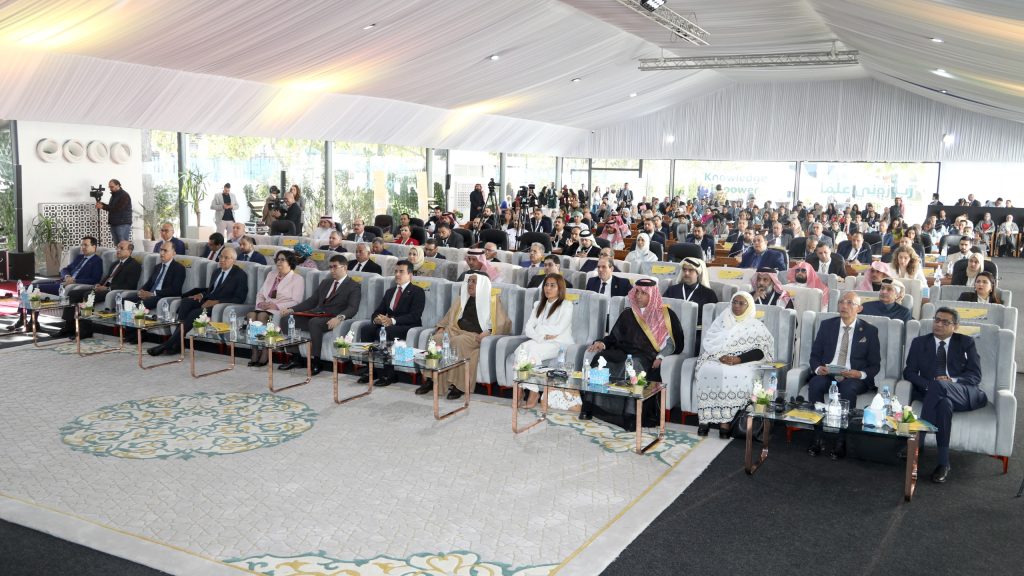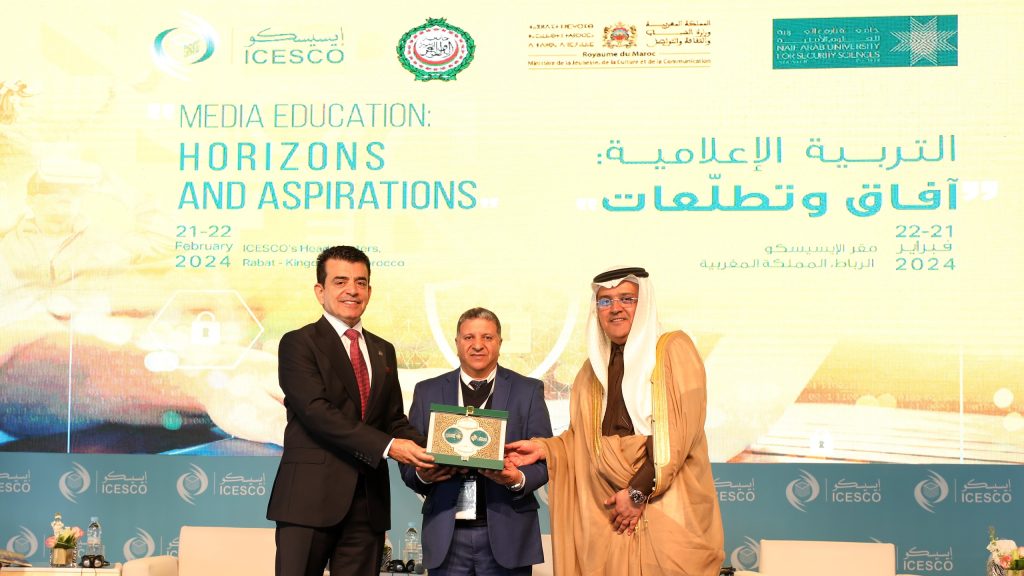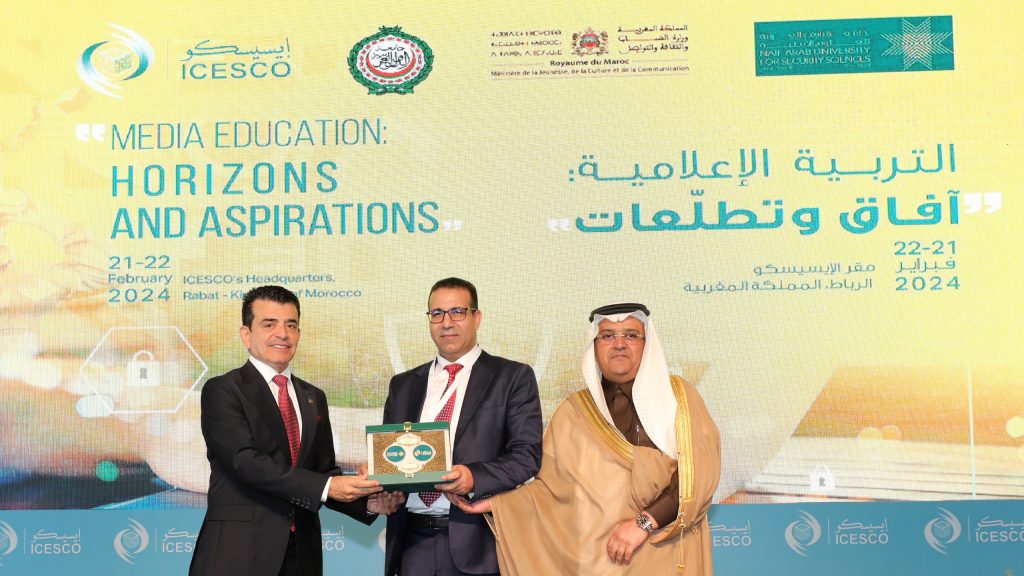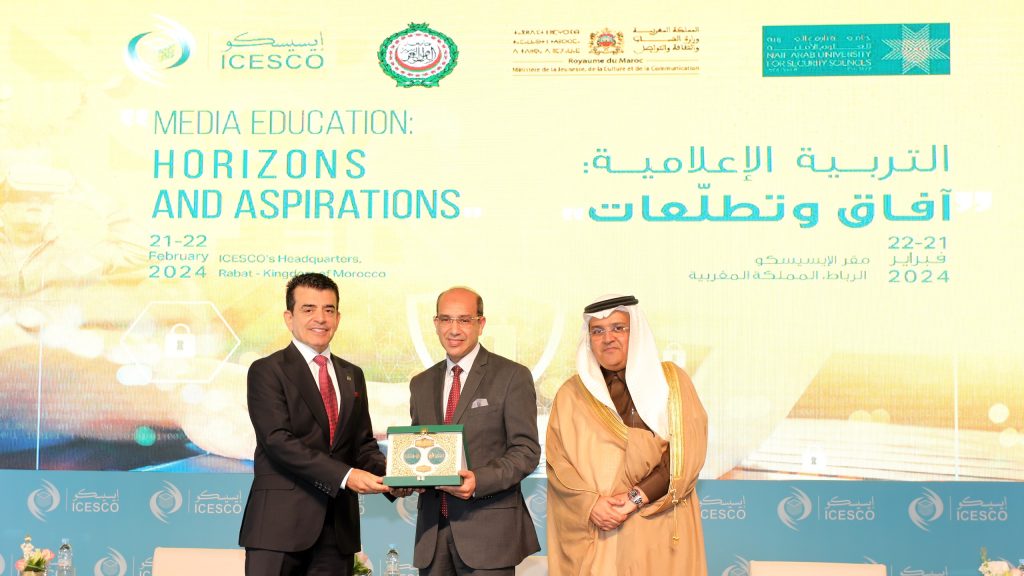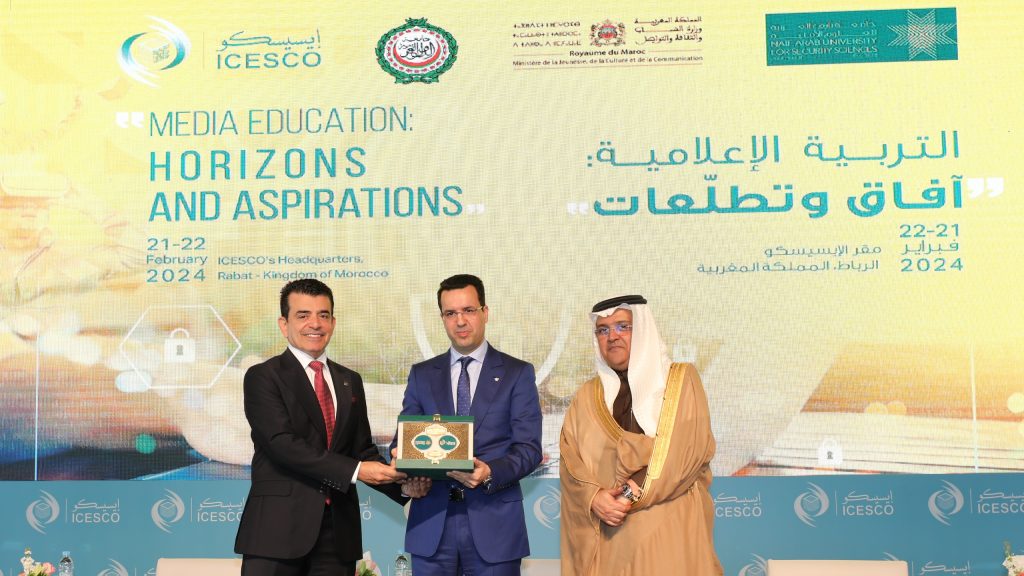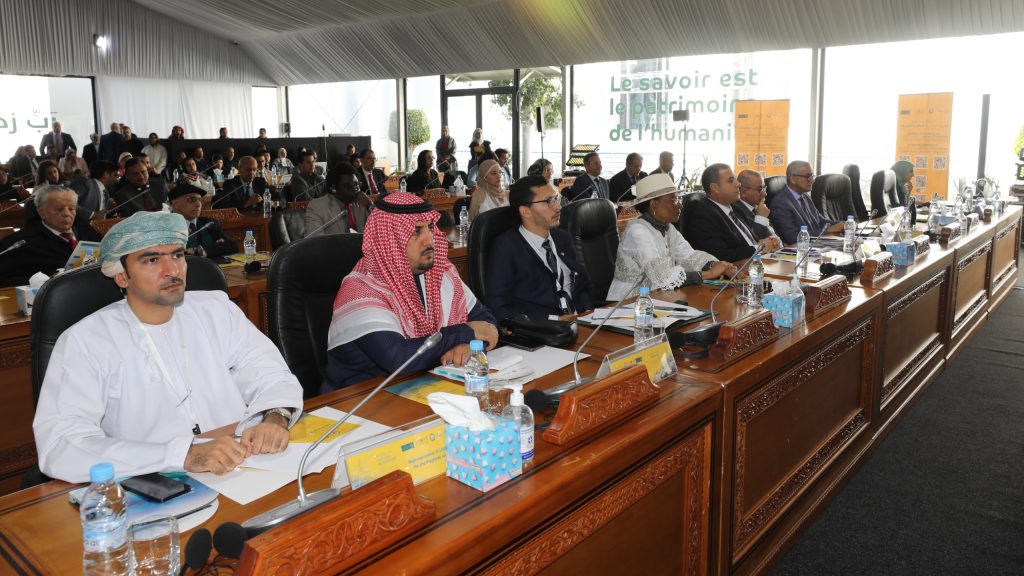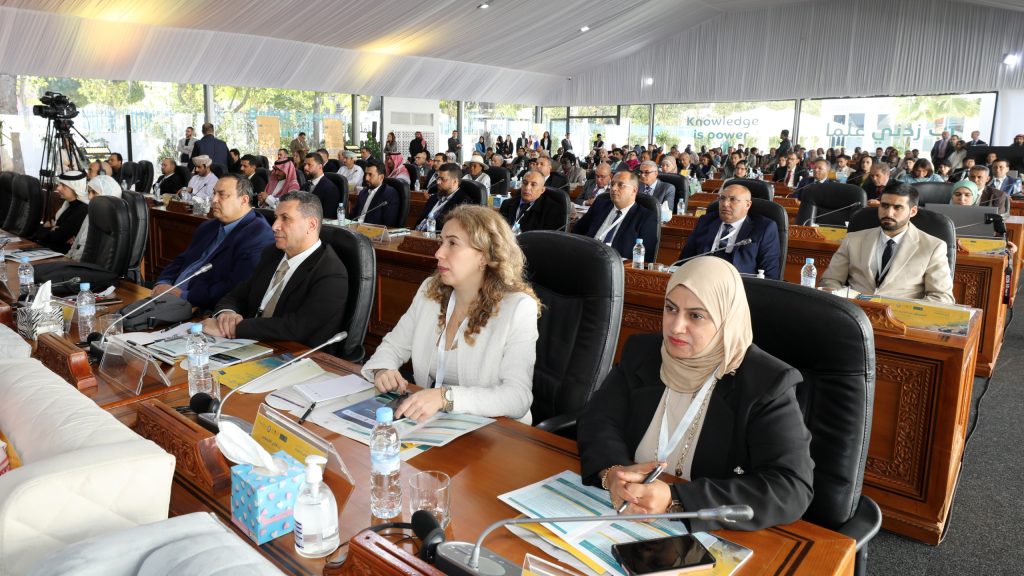
International Symposium on Media Education: Horizons and Aspirations kicks off at ICESCO headquarters
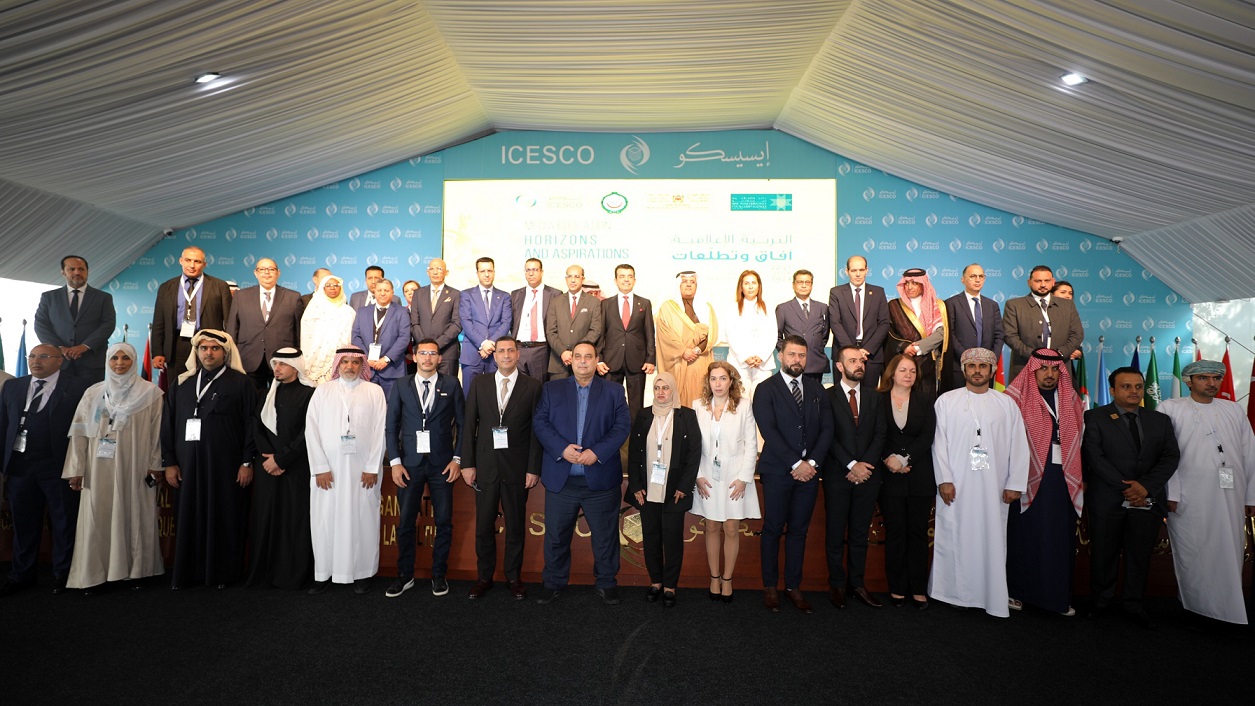
21 February 2024
The International Symposium on Media Education: Horizons and Aspirations, kicked off today, Wednesday, February 21, 2024, at ICESCO headquarters and via videoconference. The Symposium is being held by the Islamic World Educational, Scientific and Cultural Organization (ICESCO) and Naif Arab University for Security Sciences (NAUSS) in the Kingdom of Saudi Arabia, in cooperation with the League of Arab States, represented in its Media and Communication Sector—Department of the Technical Secretariat of the Council of Arab Information Ministers, and the Ministry of Youth, Culture and Communication of the Kingdom of Morocco.
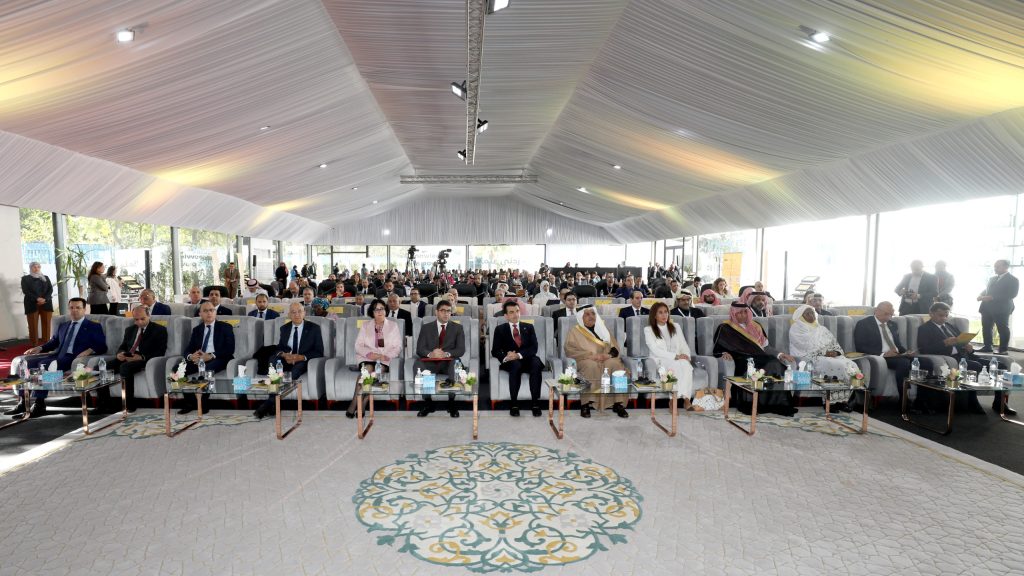
The Symposium, which brought together high-caliber participation from 16 countries, including ministers, prominent international figures, and experts specializing in the field of media, IT and security education, aims to disseminate and consolidate the concepts and principles of media and IT education and works toward integrating them in school curricula to develop critical thinking skills.
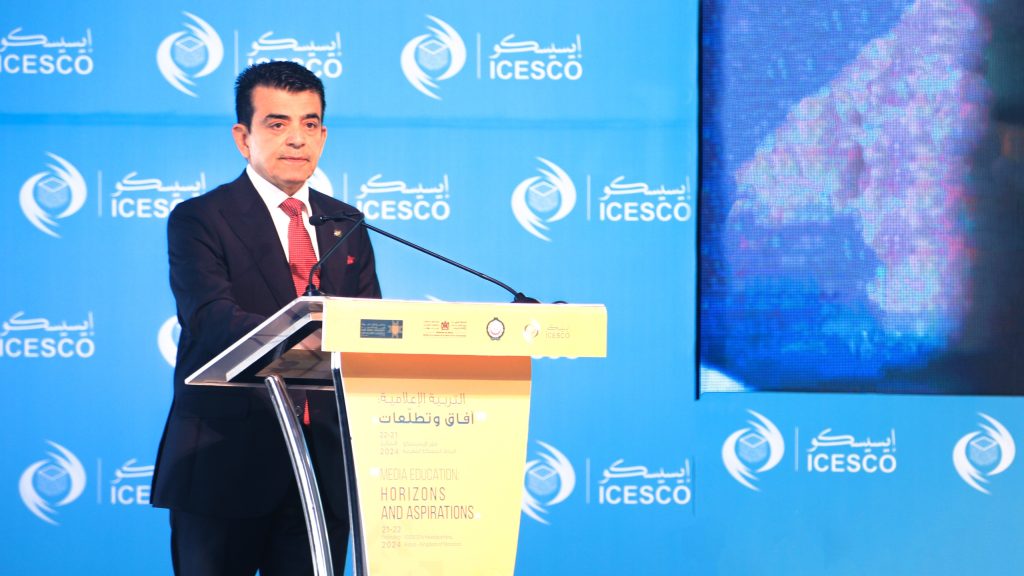
The Symposium opened with the recitation of verses from the Holy Quran, followed by the Address of Dr. Salim. M. AlMalik, ICESCO Director-General, who stressed the central role of media in all fields, noting that the media sector has the power necessary to design, develop and improve the quality of its mechanisms. Moreover, the Director-General highlighted new web media statistics, which show that more than 4.4 billion people, representing 64.6% of the world population, exchange news, and ideas via social media. He also noted that humans spend 15% of their awake time on social networks, with a total of 10 billion hours spent daily in the virtual world.
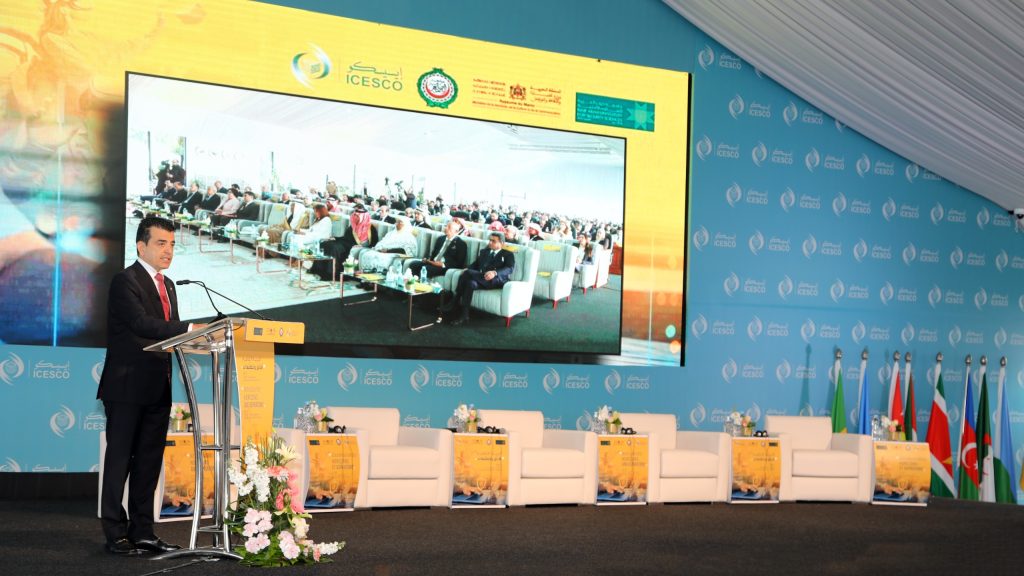
In the same vein, the Director-General stated that the unfolding waves of new media and the communication revolutions necessitate a closer look at their implications with regard to personal privacy violations and fake news propaganda, to find ways to fight these phenomena and establish for a media education that upholds the values of equality, justice and citizenship.
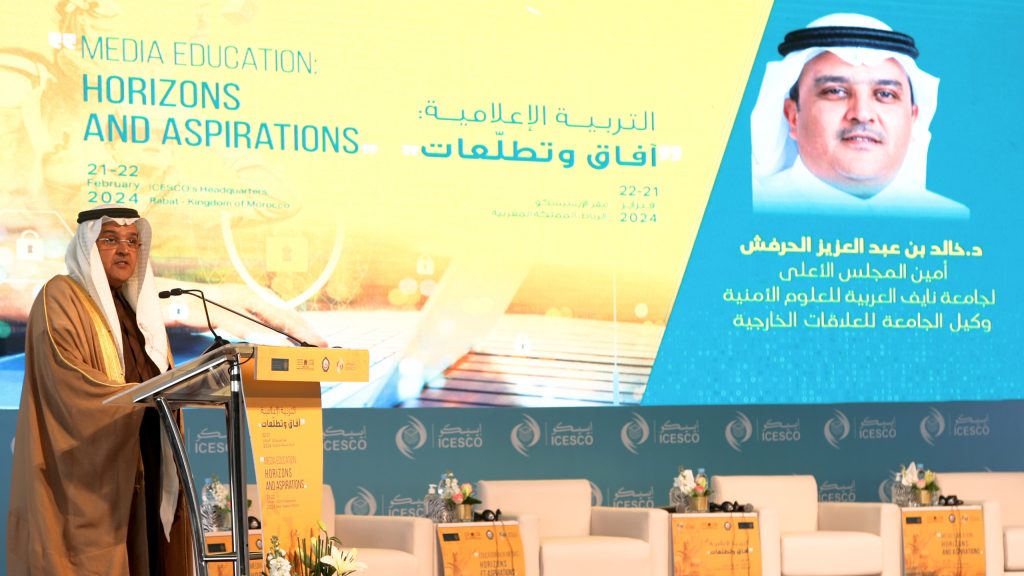
Speaking next, Dr. Khaled bin Abdulaziz Alharfash, NAUSS Vice-President for External Relations, reaffirmed that the University’s programs aim to translate its interest in the role of media in fighting and preventing crimes into a tangible reality that contributes to promoting the concept of intellectual security. He added that this interest stems from the University’s mission to implement Arab security strategies and plans and prevent crime, expressing his high hopes that this Symposium serve as a stepping stone towards an Arab strategic plan to mainstream media education.
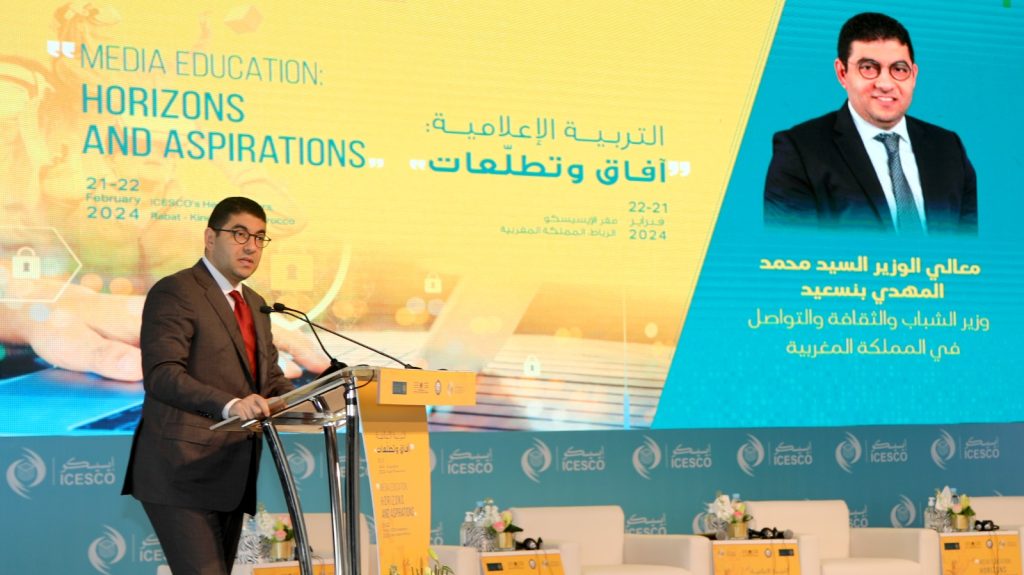
In his address, Mohamed Mehdi Bensaid, Minister of Youth, Culture and Communication of the Kingdom of Morocco, stressed Morocco’s commitment to addressing the issues of media and communication to promote critical media literacy among all social groups, especially young people, and empower them to positively use different media tools. The Moroccan Minister also highlighted his country’s efforts to promote media education and integrate it in school curricula.
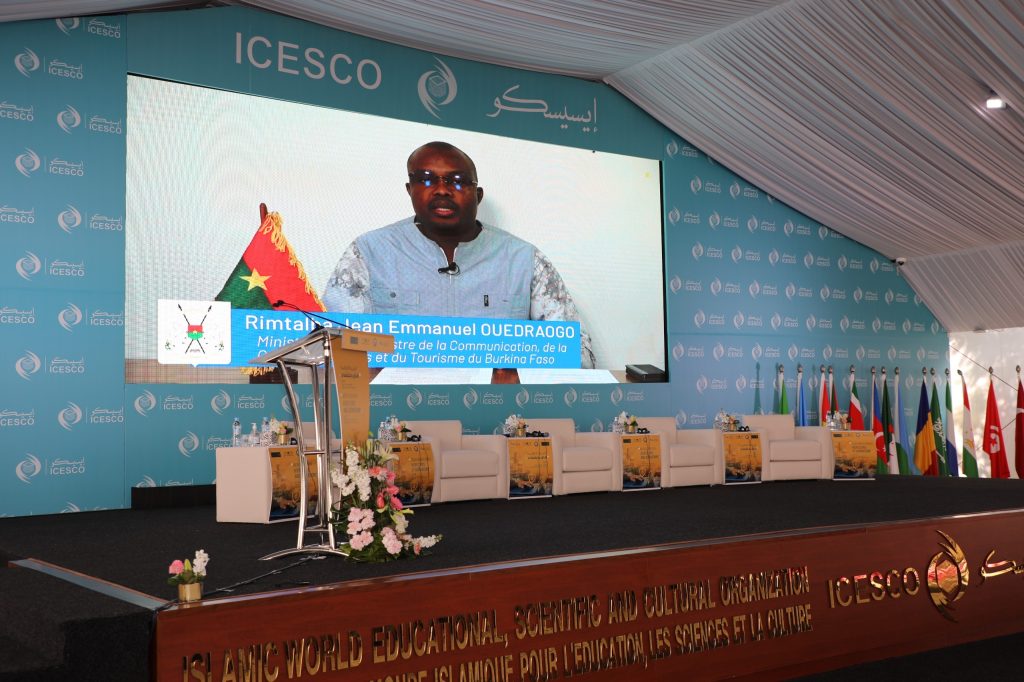
In a recorded address, Mr. Jean Emmanuel Rimtalba Ouedraogo, Minister of Communication, Culture, Arts and Tourism of the Republic of Burkina Faso, talked about his country’s great interest in media education, casting light on its efforts in this field, which include raising awareness of the proper way to handle social media.
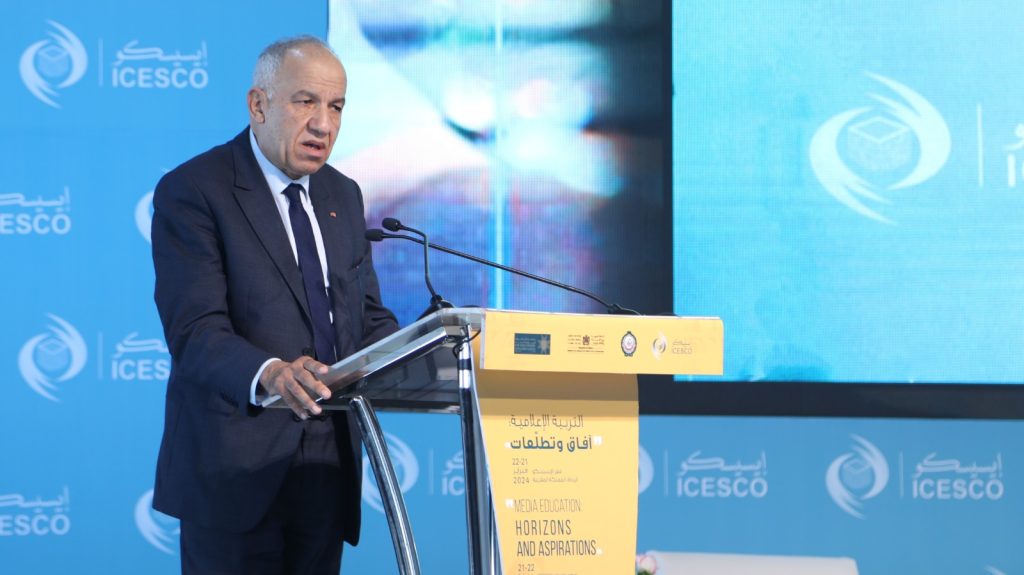
Dr. Farid El-Bacha, President of Mohamed V University, also gave an address at this key event, on behalf of Dr. Abdelatif Miraoui, Minister of Higher Education, Scientific Research and Innovation in the Kingdom of Morocco, where he addressed the theme of the Symposium, in light of the current world changes.
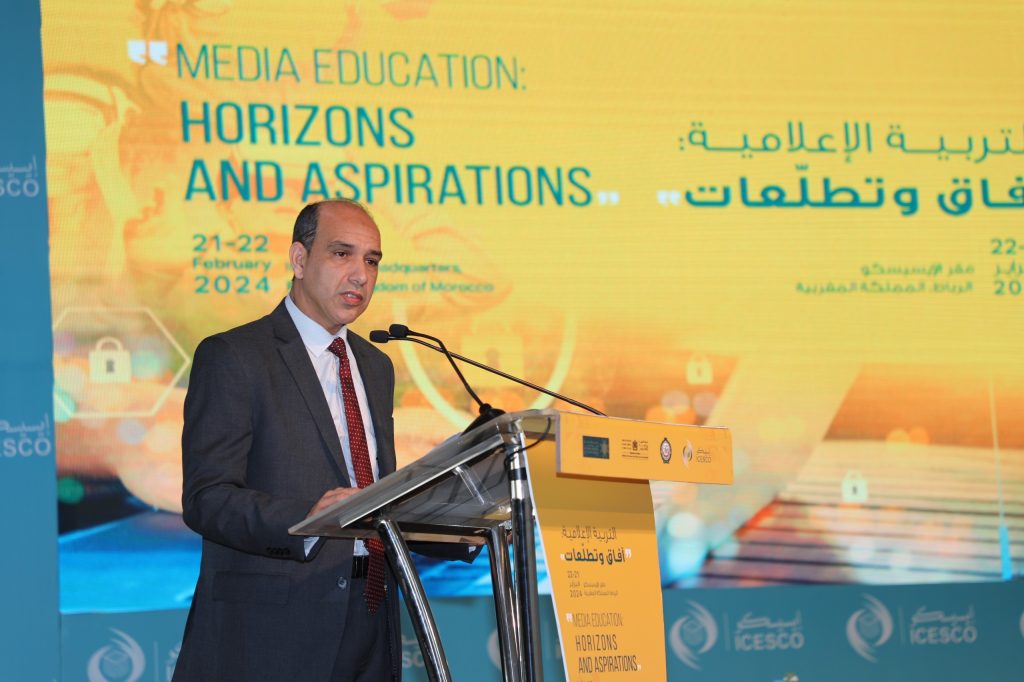
For his part, Mr. Hicham Bellaoui, Secretary-General of the Presidency of the Public Ministry, addressed the Symposium on behalf of Mr. El-Hassan Daki, King’s Attorney General at the Court of Cassation, President of the Public Ministry in the Kingdom of Morocco, stressing the significance of media education in light of a global context characterized by a technological revolution in the field of media. The Secretary-General stated that media education aims to develop people’s abilities to analyze media messages, highlighting the Kingdom’s efforts in this field.
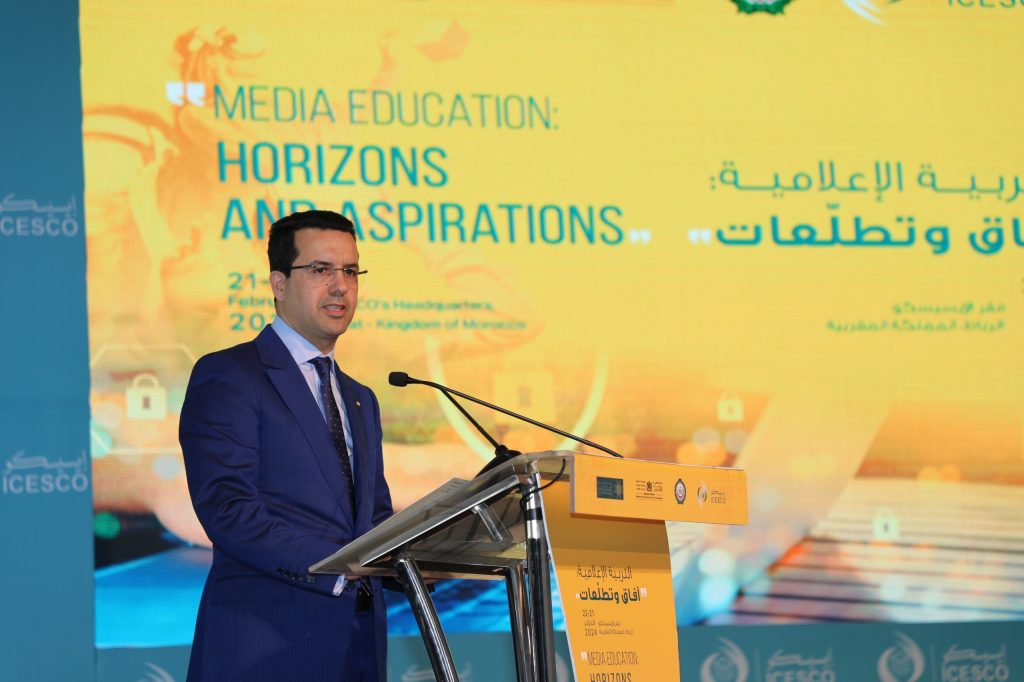
There followed the address of Mr. Boubker Sabik, Police Superintendent General, Spokesperson for the General Directorate of National Security and the General Directorate of Territorial Surveillance, on behalf of Mr. Abdellatif Hammouchi, Director of the General Directorate for Territorial Surveillance (DGST), Member of NAUSS Supreme Council, who underscored the need to shield society and raise shared awareness of the importance of media education to prevent crime, noting that the Directorate has exerted significant efforts to integrate development plans and modern approaches to collectively promote security.
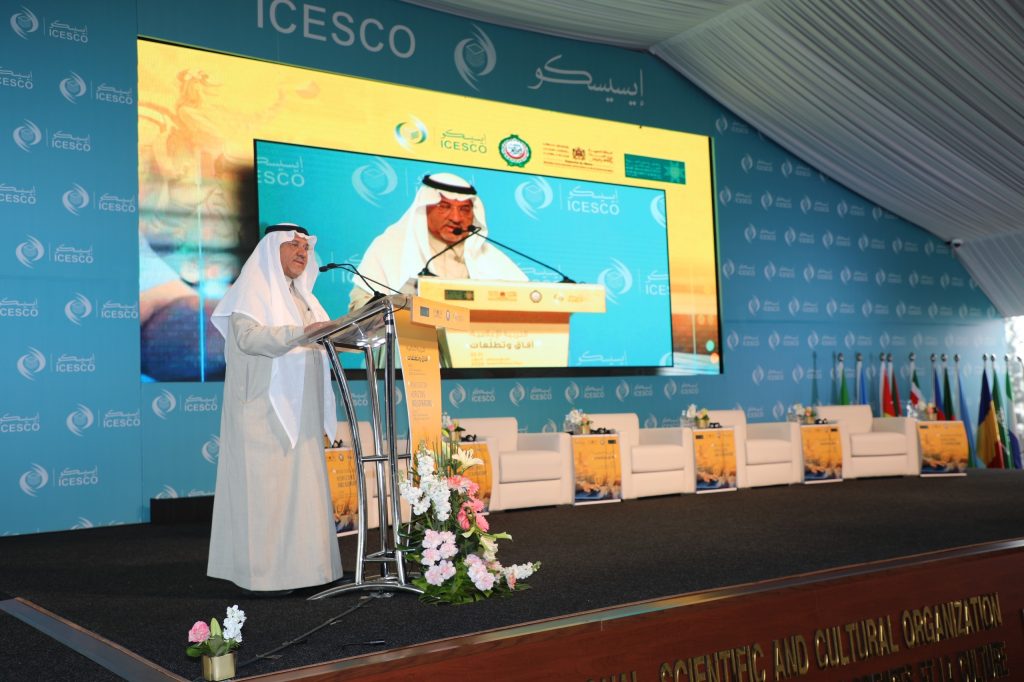
Over the course of two days, the Symposium’s working sessions will discuss scientific papers on partnerships between the fields of media and education to build a knowledge society and achieve sustainable development; ethics of the freedom of expression in media legislations and charters; leading Arab and international experiences in disseminating media education; prerequisites of media education in Arab school curricula; and AI and the future of media education.
